Welcome back, my aspiring hackers!
Although this article may have been better placed first in this series, I doubt that anyone would have read it when just starting out studying Linux. Now, that you are well into your Linux studies and have some familiarity with how it operates, I'd like to take this moment to explain the philosophy around the Linux operating system.
When I use the term "philosophy," I am not referring to such questions as "what is the meaning of life" or "does God exist," but rather what was the underlying logic and reasoning behind the design of this ubiquitous and love-lived operating system.
As many of you already know, I am strong advocate for the Linux operating system. This is for a multitude of reasons that I have tried to explain in this article. Although Linux may be ideally suited to hacking and many other applications, I think it is important to understand the philosophy underlying the Linux/Unix structure and model for any environment.
In this article, I will use the term Unix/Linux to designate this operating system. Unix was the original, developed by Thompson and Ritchie, and Linux was a re-engineer of Unix by Linux Torvalds and team. Mac OS X, iOS, Android, Solaris, AIX, HP-UX, and IRIX are all forms of Unix/Linux.
In addition, Red Hat, Ubuntu, Mint, Fedora, Debian, Slackware, and SUSE are all distributions of Linux. A distribution of Linux is simply an operating system that uses the Linux kernel, but then adds in its own additional components. These components vary, but may include applications, utilities, modules, the GUI, and others.
This variability in the distributions is often confusing and frustrating to the novice, but it is actually part of the Linux beauty and strength. Unix/Linux are designed to be flexible and portable, allowing the end-user to work the way they are comfortable, rather than the way the software developer thinks you should work.
Unix was first developed in the early 1970s by Dennis Ritchie and Ken Thompson at AT&T Labs. The fact that it is still being used over 40 years later tells you something about the quality, durability, and efficiency of this operating system. These guys did something right! How many things in computing are still around from the early 1970s?
If anything, rather than this "ancient" operating system fading away, it is gaining ground nearly every day. Chrome, Android, iOS, Linux, and Mac OS X are all based on this 40-year-old operating system. If we look at the fastest growing market—mobile devices—it is dominated by Unix variants with iOS and Android compromising over 91% of the market. It appears that the mobile market in the near future will be nearly 100% Unix/Linux.
What about this modest operating system has made it this durable and long-lasting? Let's take a look then at some of the tenants of this design philosophy that has made Linux so successful.
Assume the User Is Computer Literate
The developers of Unix (and thereby Linux) made a radical assumption: That the users are computer literate. We can't say the same for many other operating systems. In many cases, the operating system developers assume we are ignorant, illiterate Neanderthals who need to be protected ourselves. Not so with Unix/Linux.
As one sage said, "Unix(Linux) was not designed to stop its users from doing stupid things as that would also keep them from doing clever things."
Perfect! Could not have said it better myself!
Complete Control
One of key reasons that hackers use Linux and only Linux, is that it gives us complete control. Other operating systems try to hide some of their operations and features from us, afraid we will screw things up. Linux is totally transparent and enables us to see and use everything.
Choose Portability Over Efficiency
Unix was the first portable operating system, meaning it could be used on many different hardware platforms. This has served it well as Unix/Linux has now been ported and compiled for over near 60 hardware platforms. This has been a critical element in its longevity and ability to adopt to an ever-changing technological environment.
Store Data in Flat Text Files
Unix/Linux stores data in flat text files unlike other operating systems. This makes the data as portable, or more portable, than the code itself. Nearly all systems can import and use flat text files.
Use Shell Scripts to Increase Leverage & Portability
Shell scripts enhance the power of our applications. By writing a script, we can automate an application to do something as many times as we would like, as well as leverage the capabilities of other applications simultaneously. In addition, these scripts are then portable to other systems without having to recompile them.
Allow the User to Tailor Their Environment
Unix/Linux was designed to allow the user to tailor their environment to their liking. The user is in control and not the software developer. Unix/Linux implements mechanisms for doing things, but they don't dictate how you do things. This tailoring can take many forms including the graphical user interface (GUI) . There are numerous GUIs available for Linux including GNOME (the default on Kali and the most widely used), KDE, Unity (Ubuntu's default), Sugar, Trinity, Xfce, Enlightenment, and many more. In most cases, despite the default GUI that might come with your system, you can install and use any one of the other interfaces, if you please.
Make the Kernel Small & Lightweight
Although many operating system kernels continue to add features to the main kernel to offer users greater capability, they make it more and more bloated. The Unix/Linux model is to keep the kernel small and lightweight, but allow the developers and users to add components and modules as they please.
User Lowercase & Keep It Short
lowercase names and commands are a unix/linux tradition.
Silence Is Golden
Unix/Linux commands tend to be silent when you have done things correctly. This can drive some new users a bit batty when they, for instance, copy a file from one location to another and Unix/Linux has nothing to say. Not a confirmation or even a pat on the back.
Think Hierarchically
The Unix/Linux operating system was the first to develop a file system organized into a hierarchical tree. This hierarchical thinking has extended into many other areas of the operating system, such as networking and object-oriented programming.
I hope this little foray into the philosophy of Linux helps you to understand why Linux is so different than those other operating systems. The result of this philosophy is an operating system that is small, lightweight, and flexible, which treats all users with respect.
Just updated your iPhone? You'll find new emoji, enhanced security, podcast transcripts, Apple Cash virtual numbers, and other useful features. There are even new additions hidden within Safari. Find out what's new and changed on your iPhone with the iOS 17.4 update.



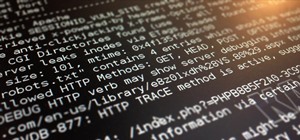
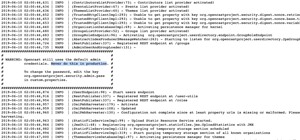



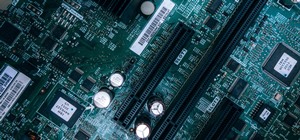



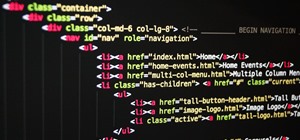
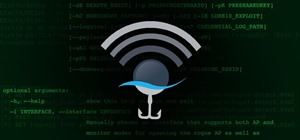





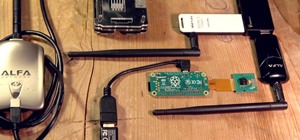



25 Comments
Great explanation sir. Can I pm you regarding my new installed Kali in my Oracle VM? Specifically regarding on how to establish a successful network connection in VM.(I'm really glad if I could find about it in your older posts) I already posted my problems in the forum but, I actually hope an answer directly from you.
I'm sorry if my English a little bit broken because I'm not in an English language environment. (French to be specific)
Regards,
Jacob.
We can't really help without more information. Please post a screenshot of the results of ifconfig and your VM network settings.
OTW
Sir, I think that I accidentally clicked on a new post instead of clicking on the 'reply' button, and that's why my reply regarding your reply is located at the bottom.
Regards,
Jacob.
I love the flexibility and transparency of Linux; such an efficient OS.
ghost_
One of my friends was messing with Arch (no, not you, Ciuffy), and screwed it up because they had too much control. lol
I love Linux because of it's small size. It uses up less memory, etc. while running quickly! It makes password cracking much shorter than it would do on Windows.
I fell in love with Linux because of portability, and open source.
Also, being lightweight is an important fact.
Arch is the perfect example, IMO.
Thank you for the reply,
This is my screenshot.
Regards.
I personally haven't encountered your problem and still don't find any problem with your Oracle VM configuration but i recommend you re-install your Guest Additions and update your headers as well as your system also.
( Also check if you have any AV blocking connections )
# Sergeant
Thanks for the reply Sargeant, regarding on your recommendation, should I just run a new command or I must first uninstall the Guest Additions first?
But for information, before this problem occured, I updated my headers before I install the Guest Additions, does this means that I have to update my headers again after I installed the Guest Additions?
# Following the steps in (http://blog.agupieware.com/2014/10/hack-lab-part-1-installing-kali-linux.html) and got stucked at the last step.
Regards,
Jacob.
Mr. Jacob:
Try not to switch to bridge in the network settings when you are not in a network.
( That should get you started, Come back should the problem persist. )
# Sergeant
Thanks for the reply,
During my progression following your step until step number 4, I don't need a password to continue to step 5. I'm curious about it. But still, I continue your steps, and finally I reboot it. I'll be waiting calmly for your next guide, Sergeant.
Additional information : I set my AV (McAfee) firewall off as default every time I reboot my computer.
Regards,
Jacob
With step 4, some users do not run their systems on root maybe for security reasons. With step 5, It updates your kernel headers.
Question: Is your problem solved or still causing you headache ?
# Sergeant
I hope all of us would stay connected in nullbyte.
Dear Sergeant,
Thank you, finally, I can establish a successful network connection in Kali.
I'm glad that you would help me, I hope for the best regarding your latest post, and, please receive my salutation
Mr. Occupytheweb
Mr. Sergeant Sploit.
I'm glad that there would be someone who would support me as I want to further my study in cryptography , hoping the best for a secured Internet surfing.
Regards,
Jacob.
Secure Internet surfing?
;)
Sir Cracker Hacker,
I only use Tor, maybe I could read your posts about fake alias and Tails.
Regarding on VPN, I'm thinking that, is there any difference between using a VPN provider or creating our own VPN. But yet, I'm still thinking about doing a penetration test on a public network, which it does have a login page before getting connected. Well, there's more to learn, but yet ,I'm getting older. :)
Regards,
Jacob.
I don't have any how-tos on that, but I do have a forum question regarding those things. Perhaps I should write one...
Thank you for the recommendation. I'll be waiting for your next post. :)
Regards,
Jacob.
I don't quite understand the problem. You seem to have your IP address for Ethernet, therefore you are connected.
Sir Cracker Hacker, maybe my problem is when, I didn't log in yet to the network in my ISP login page, then I make a bridged connection which means nothing connected yet and that's when the problem starts, thanks for your consideration.
Regards,
Jacob.
Personally I would just run Kali on a USB thumb drive. I love GNU/Linux for its freedom and respect of privacy.
Thank you for this post, just curious. occupytheweb what Linux distro do you use for your daily needs and which desktop environment?
i need help here.. i can't install any thing in kali linux .. when i try to install python-mechanize or any thing else , an error message appears (an error were encountered while processing ) !!
what should i do??
One small correction for NIX NEWBS - The article has a small typo stating the creator of LINUX as "Linux Torvalds" and it should be Linus Torvalds. LINUX came from his first name and the word UNIX thus LINUX.
PS - LOVE this site, it is my absolute favorite read!
Share Your Thoughts